

A BOLDER FUTURE, BECAUSE OF YOU.
Ken Jacobs Memorial PhD Thesis Award
2024–25 Award Recipients


WITH GRATITUDE
We are proud and grateful to recognize some of our best PhD students with the Ken Jacobs Memorial PhD Thesis Award. Ken’s belief in the power of medicine and technology was steadfast. As we partner on a collective mission of accelerating research, I am confident we will ultimately unlock the potential for brighter, healthier futures.
Through the work of those honored with the Ken Jacobs Memorial PhD Thesis Award—and countless others—genomic medicine will continue to improve human health through faster diagnoses; better disease prevention; and personalized, value-driven care.
We know the bedrock of exceptional achievement is to empower the most creative minds to push the boundaries of their abilities and venture into uncharted territories that will pave the way for a brighter and more promising tomorrow. Thank you for your support of those beginning this journey.
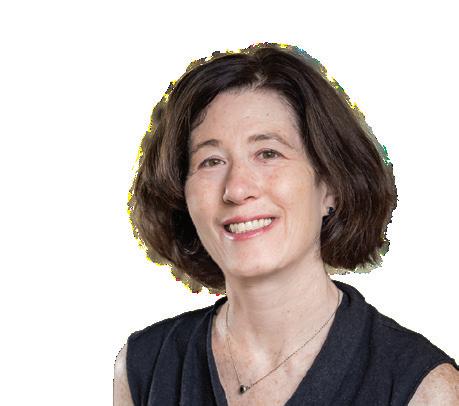
Rachel Hess, MD, MS
Associate Vice President for Research, Health Sciences
Professor, Departments of Population Health Sciences and Internal Medicine
Co-Director, Utah Clinical and Translational Science Institute
H. A. and Edna Benning Presidential Endowed Chair
2024–25 KEN JACOBS MEMORIAL
PHD THESIS AWARDEES
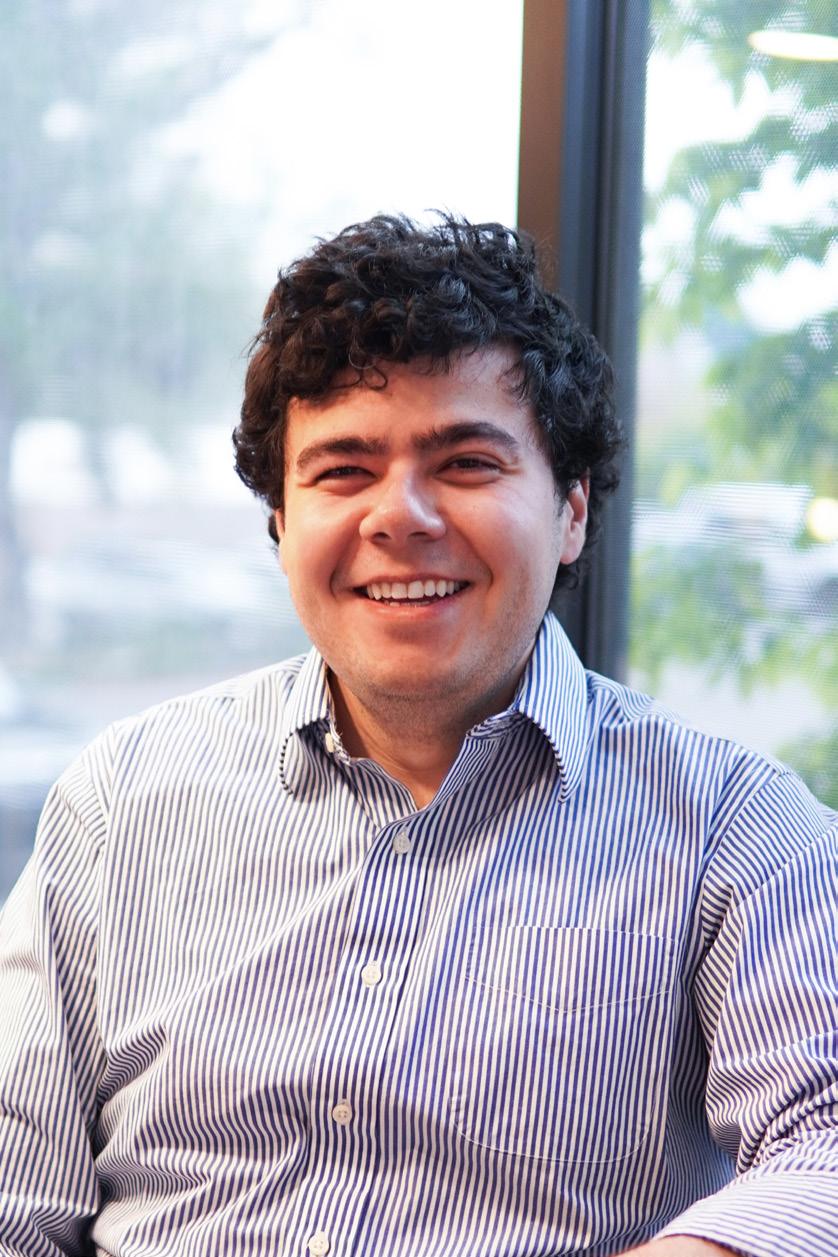
Christian Balbin, PhD Department of Biomedical Informatics
“Advancing Patient-Centered Clinical Decision Support”
Jason Kunisaki, MD/PhD Candidate Department of Human Genetics
“Computational Approaches to Investigate Germ and Somatic Cell Mutations in Fertile and Subfertile Men”
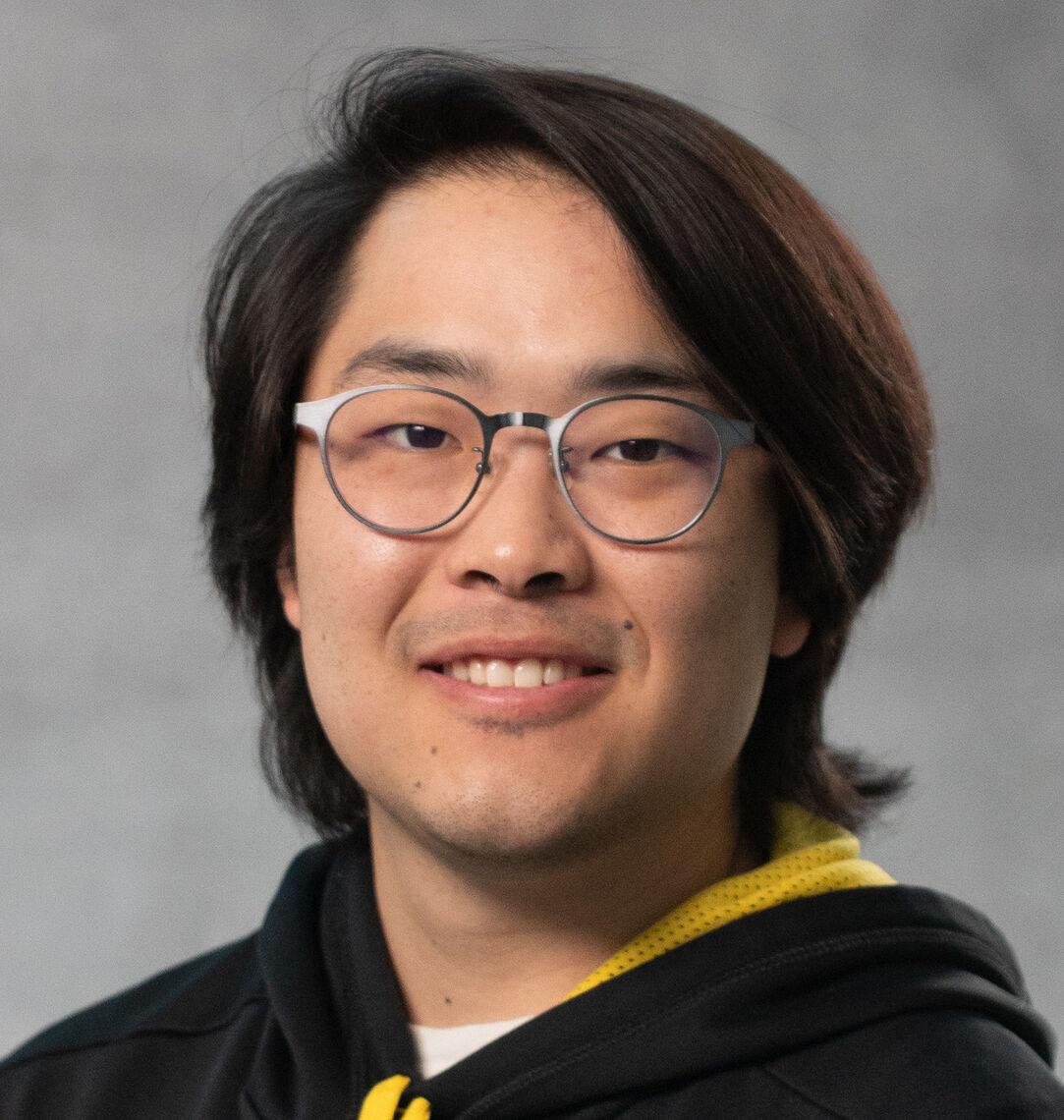
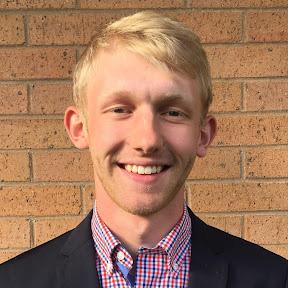
Bennet Peterson, PhD Department of Human Genetics
“The Mendelian Phenotype Search Engine: Automated Prioritization of Sick Newborns for Whole Genome Sequencing”
Casey Sederman, MD/PhD Candidate Department of Human Genetics
“Deep Learning-Based Integration of Tumor Omics and Functional Drug Screening for Personalized Therapy
Selection: Bridging the Gap from Cell Lines to Clinical Application”
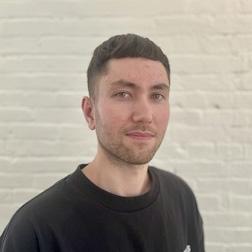
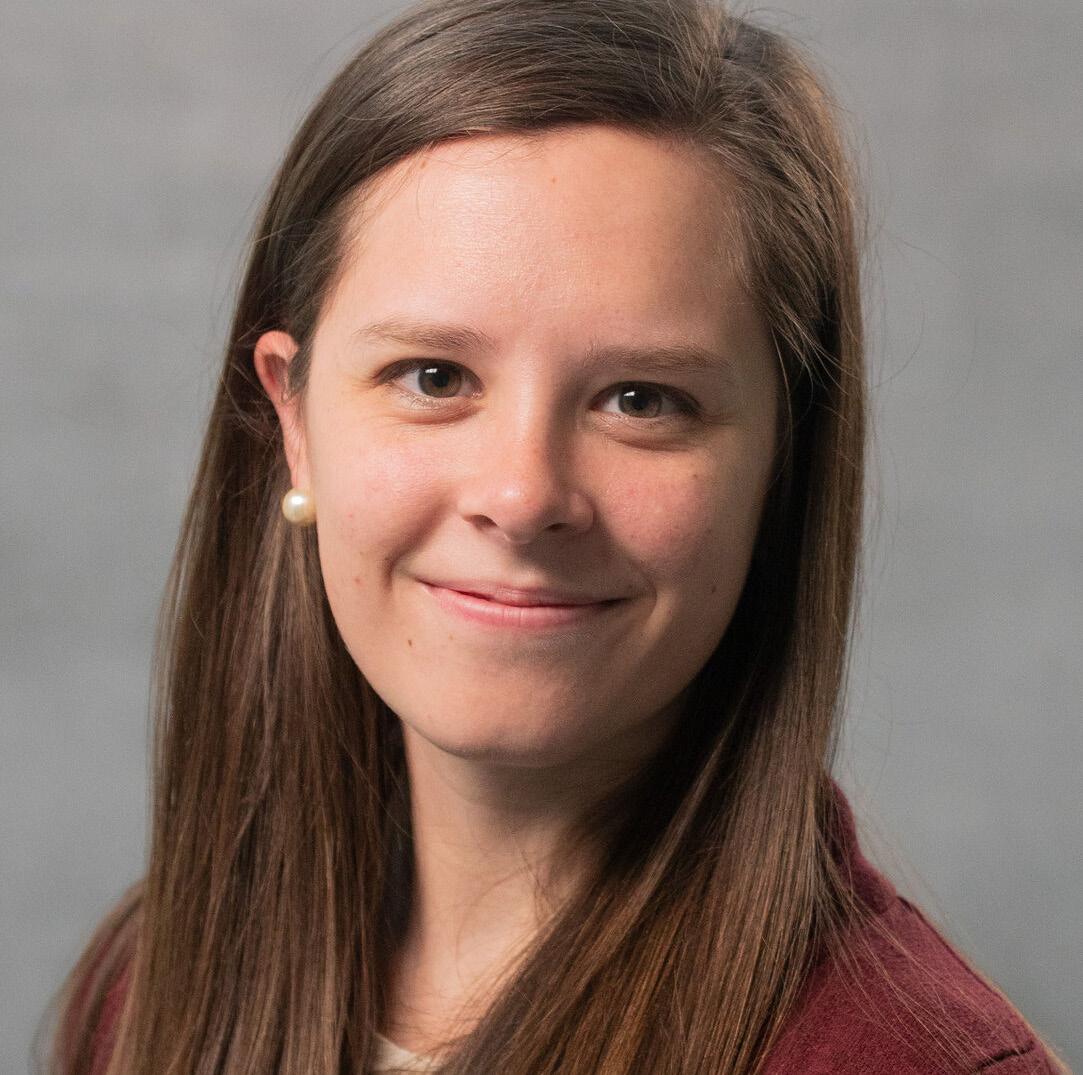
Holly Thorpe, PhD Candidate Department of Human Genetics
“Identifying Genetic Modifiers of Congenital Disorders of Glycosylation through Pedigree and Evolutionary Analyses”
CHRISTIAN BALBIN, PHD
│ Biomedical Informatics
HSEB 5700; 26 South 2000 East; Salt Lake City, Utah 84112 -5750 801 581 4080 FAX 801 581 4297 http://medicine utah edu/bmi/
February 7, 2025
Re: Nomination of Dr Christian Balbin, PhD, for Ken Jacobs Memorial Distinguished Thesis Award in Computational Healthcare Research
Dear Members of the Selection Committee:
It is my great pleasure to nominate Dr. Christian Balbin for the Ken Jacobs Memorial Distinguished Thesis Award. Dr. Balbin, simply put, is the most promising PhD student I’ve had the pleasure of mentoring Dr Balbin’s dissertation, titled “Advancing Patient-Centered Clinical Decision Support,” leveraged advanced computational methods to improve clinical decision making and patient care Key contributions from his doctoral work include the development of a standards-based software architecture for enabling patient-facing clinical decision support, the design and development of a patient-facing, AI-driven lung cancer screening shared decision making tool that is being studied through a multi-center randomized controlled trial, and the use of transformer-based AI methods to predict the medications most likely to be prescribed at a patient visit For this last contribution, his novel AI methods significantly improved upon the predictive analytics performance previously reported in the literature, substantially out-performing a Google-developed predictive model that had previously been the most effective approach described in the literature Several of these critical advancements have not yet been published but this is because, given his extreme productivity, we fast-tracked him this winter to graduate with his PhD in 2.5 years perhaps a record in our field. He has multiple manuscripts about to be submitted, and to our delight, he has agreed to stay on at the University of Utah as a post-doctoral fellow in our group funded by a prestigious National Library of Medicine fellowship. Dr. Balbin is now applying AI techniques, and in particular large language models (LLMs), to continue to push the bounds of computational healthcare research. This includes the use of LLMs to extract structured data from scanned genetic test reports in the electronic health record as a part of the National Institutes of Health’s Genomics-Enabled Learning Health System Network, for which I serve as the contact Principal Investigator for the University of Utah In summary, Dr Balbin is making exceptional contributions to computational healthcare research, including in genomics I am therefore pleased to nominate him for the Ken Jacobs Memorial Distinguished Thesis Award
Sincerely,

Kensaku Kawamoto, M.D., Ph.D., M.H.S Professor and Vice Chair for Clinical Informatics, Dept. of Biomedical Informatics
Associate Chief Medical Information Officer
Co-Senior Director, Digital Health Initiative
University
of Utah
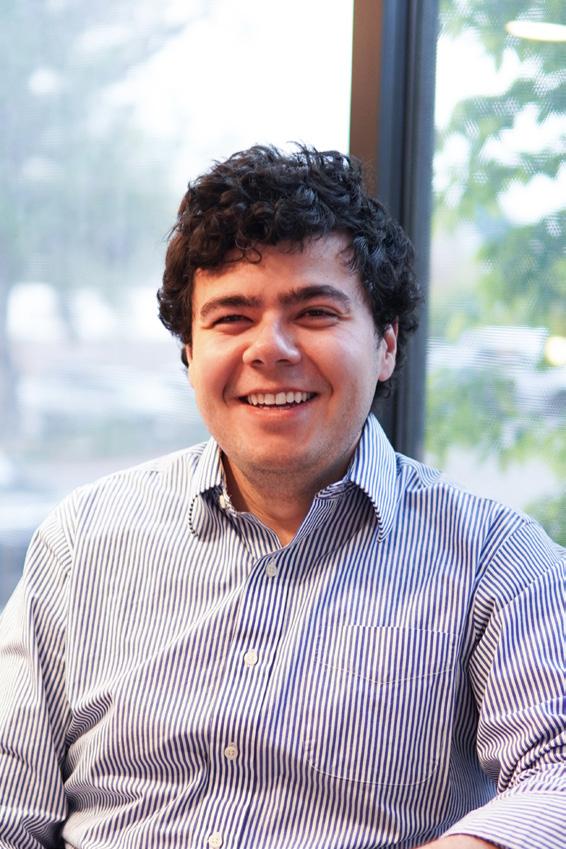
I am deeply honored to have been selected as a recipient of the Ken Jacobs Memorial PhD Thesis Award. This recognition means a great deal to me, and I am profoundly grateful for your generous support of computational health care research and those who seek higher learning.
My doctoral research focused on improving health care through computational solutions and artificial intelligence. I began by developing a standardized framework for integrating patient-facing clinical decision support applications into patient portals. This framework led to the creation of MyLungHealth, an AI-driven educational tool that helps smokers understand their risk of developing lung cancer and the potential benefits of screening. Additionally, I developed a state-of-the-art AI prediction model that can anticipate which medications might be prescribed in upcoming patient encounters. This innovation allows us to proactively provide patient-specific cost estimates early in the prescribing workflow, helping to prevent situations where patients are prescribed medications they cannot afford and subsequently abandon at the pharmacy.
Looking ahead, I plan to continue developing innovative computational solutions for health care challenges. I am developing a system using visual language models (VLMs) to generate structured data from unstructured genetic test reports, supporting our node of the genomics-enabled Learning Health System. I’m also developing an approach to use AI to transform unstructured clinical guidelines into structured clinical decision support rules, with the goal of reducing the time from publication to implementation and ensuring broader coverage of guidelines. Finally, I’m developing a system utilizing large language models (LLMs) to generate personalized messages to support our weight loss coaching efforts.
This award will support me in my continued research during this period as a postdoctoral fellow. It will allow me to attend conferences and provide me with an extra level of freedom to focus on my research. It is truly meaningful to have my research recognized by an award that honors someone who made such significant contributions to computer history.
Thank you once again for your generosity. I am inspired by Ken Jacobs’s contributions to computational sciences and database work, and I hope to carry forward a similar spirit of innovation, kindness, and humility in my own career.
Sincerely,
Christian Balbin, PhD
JASON KUNISAKI, MD/PHD CANDIDATE
Department of Human Genetics
University of Utah Eccles Institute 15 N. 2030 E. Salt Lake City, UT 84112
Dear Reviewer,
I am delighted to nominate Jason Kunisaki for the Ken Jacobs Memorial Distinguished Thesis Award in Computational Healthcare Research. Jason is a uniquely talented MD/Ph.D. student who is wrapping up (defense in May 2025) the Ph.D phase of an MD/Ph.D. I've had the honor and pleasure of serving as his Ph.D. advisor for the last five years. Jason had the foresight to pursue a Ph.D. that would allow him to develop essential computational skills to become a cutting-edge physician scientist of the future. His primary study in his thesis investigated the relationship between male infertility, germline mutation rates, and somatic health. Using an advanced, error-corrected DNA sequencing technology and intricate computational techniques, he found significantly elevated sperm mutation frequencies in subfertile men compared to fertile men. His findings implicate germline hypermutation as a potential hallmark of spermatogenic impairment and nominates deficiencies in DNA damage repair as an underlying mechanism. His study's innovative approach lies in directly measuring mutations in bulk sperm, encompassing both reproductively fit and unfit gametes, thereby addressing biases inherent in traditional pedigree studies. Unlike prior research, this study directly examines single nucleotide DNM rates and patterns in the sperm and blood cells from fertile and subfertile men. Jason's findings underscore the importance of understanding the mechanisms driving spermatogonial stem cell dysfunction and germlin e mutagenesis, with potential implications for assisted reproductive outcomes and personalized therapeutic strategies. His manuscript was favorably reviewed in Nature and we are submitting a revision by summer.
I emphasize that despite the power of error-corrected DNA sequencing, this study required Jason to spend two years developing a suite of complex computational tools to distinguish true mutation from artifacts. He demonstrated tremendous leadership and ability to collaborate with a team of clinician scientists and experimentalists in pursuing this work, and the computational tools he developed are the basis of a second manuscript for the dissertation he will submit in May 2025. What impresses me most about Jason is his work ethic and zeal for research with translational potential. He is incredibly hard-working and a gifted computational biologist; these traits, combined with his intellect and unusually strong communication skills, position him for a successful and impactful career. As detailed in his CV, Jason has been invited to present at multiple conferences, he has published several articles, and he is the recipient of multiple awards, including an F31 fellowship from the NIH. Jason is an ideal candidate for this award, and I cannot imagine a more deserving student.
Sincerely,

Aaron Quinlan, Ph D Professor and Chair of Human Genetics Department of Human Genetics
University
of Utah
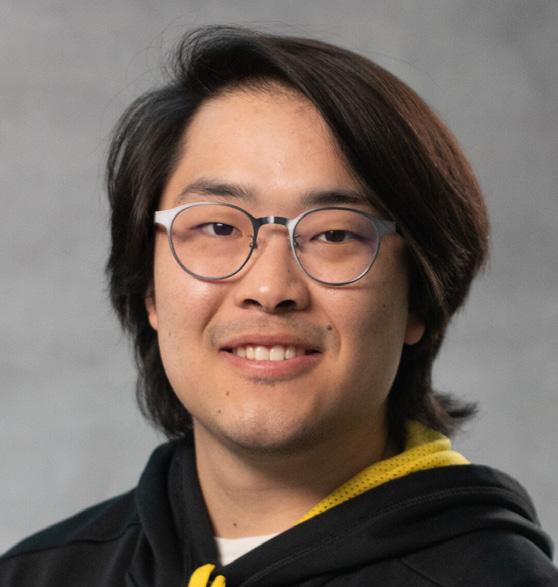
I am writing to extend my sincere appreciation and gratitude for your generous donation through the Ken Jacobs Memorial PhD Thesis Award in Computational Healthcare. As an MD/PhD student in Dr. Aaron Quinlan’s lab, my research investigates whether increased mutation burdens in the sperm and blood are linked to reduced sperm production and poor overall health in male infertility.
As an aspiring physician-scientist and MD/PhD student, I hope to build upon my PhD research as a reproductive endocrinology and infertility specialist through OB/GYN dedicated to clinically managing couples seeking fertility care and advice. The funds provided by the Ken Jacobs Memorial PhD Thesis Award will be essential for my pursuit of these goals, as they will be used for conference travel to share my fertility-related research findings and to purchase several medical school study resources to prepare for clinical rotations and board exams.
Thank you again for your generous donations and continued support for computational health care and bioinformatics. I am so excited and honored to have received this award.
Sincerely,

Jason Kunisaki
BENNET PETERSON, PHD CANDIDATE

February 9, 2025
To: Ken Jacobs Memorial Thesis Award Selection Committee:
Dissertation Title: The Mendelian Phenotype Search Engine: automated prioritization of sick newborns for Whole Genome Sequencing
It is my distinct pleasure to nominate Bennet Peterson, a PhD student in the department of Biomedical Informatics, for the 2025 Ken Jacobs Memorial Distinguished Thesis Award. Bennet’s thesis work is centered upon Machine Learning and AI-based tools to speed the delivery and effectiveness of medical care to critically ill children in Newborn Intensive Care Units.
Over the last decade, Newborn Intensive Care Units have emerged as the front line in the war to treat and cure genetic diseases It is now well established that between 40% to 50% of level IV NICU patients the sickest children are in the Newborn Intensive Care Unit (NICU) because they have been born with a genetic disease. Determining which children, which disease, and determining a plan of care, is one of the most active areas for improving medical care in the world today.
I’m proud to say that Bennet is a major contributor to these efforts, through the development of MPSE the Mendelian Phenotype Search Engine. MPSE operates behind the lines, within hospital databases to constantly survey and monitor every child in the NICU for signs of genetic disease. MPSE does this by continuously reviewing every child’s clinical notes, medical procedures, lab reports, etc , to identify those children whose symptoms suggest an as yet unrecognized genetic disease. MPSE then alerts the physicians that sequencing the child’s genome may provide a means to understand the underlying cause of their illness. And as Bennet’s and other’s work has shown, indeed it does, almost half the time
Adoption is always the best measure for judging the success of a new software tool. Bennet’s first, publication on MPSE was powerful enough to convince Rady Children’s Hospital to carry out a successful (and now published) prospective clinical trial of MPSE across its southern California hospitals, with the Conrad Prebys foundation providing $2 million dollars for the trial. Eight months ago, the University of Utah and Intermountain Health received a $4.5 million grant from the Warren Alpert Foundation, supplemented with another $4.5 million in matching funds from Intermountain Health for the Gene Kids Project [1], whose goal is to deploy MPSE across Utah and the west. Never in my career have I seen more immediate impact surrounding a PhD project. Bennet is a superstar. The Ken Jacobs award will provide important recognition of that fact and help to jumpstart what will surely be a shining and successful scientific career
1. https://uofuhealth.utah.edu/newsroom/news/2024/08/new-collaboration-aims-provide-geneticdiagnoses-thousands-of-kids
Sincerely,

Mark Yandell, PhD Professor of Human Genetics Co-director USTAR Center for Genetic Discovery Assoc. Director Program in Personalized Health

I want to express my heartfelt gratitude to you for selecting me to receive the Ken Jacobs Memorial PhD Thesis Award. I feel a great sense of pride for receiving this award and contributing to scientific research that honors the memory and professional legacy of Ken Jacobs.
Throughout my doctoral studies, I have devoted myself to developing a computational tool that assists in selecting newborn patients for clinical genome sequencing for the purpose of diagnosing rare genetic diseases. It can be challenging and time-consuming to identify when a sick newborn is suffering from a rare genetic disease. The tool my collaborators and I have developed uses fully automated data processing and machine learning technologies to efficiently monitor the newborns in a hospital’s Intensive Care Units (ICUs) for patients that may have an undiagnosed genetic disease. The tool is then able to recommend that patients receive clinical genome sequencing to confirm the suspected diseasecausing genetic mutation. This computational tool has proven quite successful and garnered the interest of groups around the country. A clinical implementation study of the tool conducted at Rady Children’s Hospital-San Diego was published earlier this year. Last year, Intermountain Children’s Health was awarded a large grant from the Warren Alpert Foundation to deploy our tool for clinical care across the Intermountain West region.
Since finishing my doctoral work, I have transitioned to a post-doctoral research position at the University of Utah’s Department of Human Genetics, where I will collaborate with clinicians at Intermountain Children’s Health on the ongoing project mentioned above. My doctoral work gave me a deep appreciation and commitment to improving the clinical care of newborns suffering from rare genetic diseases. I am excited to continue this work during the next phase of my professional development. This dissertation award gives me confidence that my work is meaningful and worthy of my continued dedication. I humbly thank you for your generosity, recognition, and encouragement.
Sincerely,
Bennet Peterson, PhD
CASEY SEDERMAN, MD/PHD CANDIDATE

February 14, 2025
Nomination for the Ken Jacobs Memorial Thesis Award in Computational Healthcare Research
Dear Members of the Selection Committee,
I am writing to nominate Mr. Casey Sederman for this prestigious award. Casey is an MD-PhD student in my laboratory who is preparing to graduate with his PhD degree from my laboratory by June 2025. Casey’s thesis work and dissertation describes foundational work in developing Artificial Intelligence / Machine Learning (AI/ML) methodologies for precision-guided selection of anticancer therapies. In a nutshell, he has developed a computational strategy that predicts a tumor’s response across the whole range of available cancer treatments for the patient’s tumor type with class-leading accuracy. A particular strength of his approach is the unique ability for his algorithm to integrate information from advanced single-cell omic and drug screening characterization data collected from the patient’s tumor. His algorithm is currently being tested clinically in advanced/metastatic breast cancer patients and pediatric brain cancer patients at our collaborators’ laboratories at the Huntsman Cancer Institute and Primary Children’s Hospital. His manuscript describing his approaches is currently under consideration at the journal Nature Cancer; and his algorithms form the basis for a Program Project Grant application awaiting peer review at the National Cancer Institute. I believe that the computational algorithms he describes in his thesis will form the foundation of applying the most state-of-the-art AI/ML approaches in clinical precision oncology.
I would like to add that Casey is a generational talent. Even as a doctoral student, he is performing at the level of senior postdoctoral researchers. He is a leading expert in the design and application of AI/ML approaches in biomedicine. In addition to his own thesis project, he is the de facto lead of multiple additional AI/ML-based projects in my laboratory. He is the most helpful and supportive colleague, as other graduate students in my laboratory often point out. I think Casey exemplifies the best in computational research, and is an ideal candidate for the Ken Jacobs Memorial Thesis Award.
Please feel free to reach out for any additional information during the selection process.
Sincerely,

Gabor T. Marth, D.Sc. H.A. and Edna Benning Presidential Endowed Chair Professor, Department of Human Genetics
Director, Utah Center for Genetic Discovery
Eccles Institute of Human Genetics
University of Utah School of Medicine 15 North 2030 East, Room 7410B Salt Lake City, UT 84112-5330
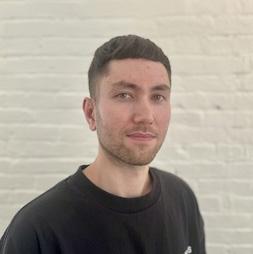
I am writing to express my gratitude for being selected as one of the recipients of the Ken Jacobs Memorial PhD Thesis Award. It is an honor to be recognized through an award commemorating the memory of Ken Jacobs, a pioneer in computational science and database technologies and a man with a legacy of dedication and humility.
My thesis research focuses on the development of artificial intelligence and machine learning (AI/ML) approaches to identify the most effective precision treatments for a patient’s tumor. Uniquely, our computational method integrates data from advanced tumor omic profiling with functional drug screening in patient tumor avatars to provide highly accurate response predictions for a broad range of cancer treatments. Together with a team of investigators and clinicians at Huntsman Cancer Institute and Primary Children’s Hospital, we are evaluating this treatment selection strategy in advanced breast and pediatric brain tumors, two cancer types with poor prognosis and limited treatment options.
Looking forward, I am excited to continue developing computational strategies to improve precision oncology while also expanding my research focus to include rare disease diagnostics. Before returning to medical school to complete my clinical training, I plan to take a brief leave of absence from the MD/ PhD program. During this time, I will lead a program of research leveraging large-scale patient claims databases to develop AI/ML models capable of diagnosing rare and ultra-rare genetic diseases. I plan to use the funds provided through this award to present my research at the American Medical Informatics Association Annual Symposium and the International Conference of Artificial Intelligence in Medicine, two leading conferences centered on biomedical applications of machine learning. Beyond sharing my work with the global research community, these opportunities will allow me to forge collaborative relationships and establish a foothold in the rare disease space.
The recognition afforded by this award reinforces my commitment to leveraging computational innovations to improve health care outcomes. Thank you once again for your generous support and belief in my work. I am inspired by your commitment to advancing computational science, and I am determined to honor this legacy by making a meaningful and lasting impact on patient’s lives through my research.
Sincerely,
Casey Sederman
HOLLY THORPE, PHD CANDIDATE

February 14, 2025
To: Ken Jacobs Memorial Thesis PhD Award Selection Committee
Nomination for the Ken Jacobs Memorial Thesis Award in Computational Healthcare Research
Holly Thorpe is an incredible graduate student and is well deserving of this award. She has published three firstauthor papers and is scheduled to defend on March 13, 2025.
Dear Members of the Selection Committee,
A basic tenet of precision and genomic medicine is the idea that patients are individuals. To realize the promise of precision medicine, we need to understand what underlies these inter-individual differences. While social economic status and environment are key factors, my lab focuses on genetic variation and how modifier genes might impact disease outcomes among individuals. Holly Thorpe’s thesis project attempts to tackle some of these problems with two different computational projects.
In the first part of her thesis, she takes a computational evolutionary approach to identify modifier genes of a class of rare diseases, the congenital disorders of glycosylation (CDGs). Holly uses genomic data across evolution, from yeast to humans, and asks which genes co-evolve with >150 CDG genes (Thorpe et al., 2024). Co-evolution between genes suggests a functional connection that may act as modifier genes. Indeed, Holly found that these glycosylation genes not only co-evolve with other glycosylation genes but also with unexpected biological pathways, revealing new disease pathogenesis. To expand on these computational approaches, Holly used genetic interaction assays in Drosophila to validate many of the novel co-evolution signals.
In her second project, Holly sought to identify a modifier gene that might be segregating in a family with incomplete penetrance of PIGA-CDG, a rare CDG caused by mutations in PIGA (Thorpe et al., 2025). Using whole genome sequencing and variant calling, Holly identified the variants segregating with individuals that carried the disease allele but were unaffected. She identified a strong candidate gene carrying a loss of function allele that appeared to protect individuals from disease. To validate these computational predictions, Holly used functional analyses in Drosophila to show that the loss of function of the modifier gene also rescues a model of PIGA-CDG.
I am writing to nominate Mr. Casey Sederman for this prestigious award. Casey is an MD-PhD student in my laboratory who is preparing to graduate with his PhD degree from my laboratory by June 2025. Casey’s thesis work and dissertation describes foundational work in developing Artificial Intelligence / Machine Learning (AI/ML) methodologies for precision-guided selection of anticancer therapies. In a nutshell, he has developed a computational strategy that predicts a tumor’s response across the whole range of available cancer treatments for the patient’s tumor type with class-leading accuracy. A particular strength of his approach is the unique ability for his algorithm to integrate information from advanced single-cell omic and drug screening characterization data collected from the patient’s tumor. His algorithm is currently being tested clinically in advanced/metastatic breast cancer patients and pediatric brain cancer patients at our collaborators’ laboratories at the Huntsman Cancer Institute and Primary Children’s Hospital. His manuscript describing his approaches is currently under consideration at the journal Nature Cancer; and his algorithms form the basis for a Program Project Grant application awaiting peer review at the National Cancer Institute. I believe that the computational algorithms he describes in his thesis will form the foundation of applying the most state-of-the-art AI/ML approaches in clinical precision oncology.
Holly’s thesis combined computational and functional approaches to demonstrate the importance of modifier genes and the need to understand them better. Ultimately, her work will pave the way for the implementation of precision genomic medicine.
Clement Chow, PhD
I would like to add that Casey is a generational talent. Even as a doctoral student, he is performing at the level of senior postdoctoral researchers. He is a leading expert in the design and application of AI/ML approaches in biomedicine. In addition to his own thesis project, he is the de facto lead of multiple additional AI/ML-based projects in my laboratory. He is the most helpful and supportive colleague, as other graduate students in my laboratory often point out. I think Casey exemplifies the best in computational research, and is an ideal candidate for the Ken Jacobs Memorial Thesis Award.
Associate Professor, Department of Human Genetics University of Utah School of Medicine
Please feel free to reach out for any additional information during the selection process.
Sincerely,
Gabor T. Marth, D.Sc. H.A. and Edna Benning Presidential Endowed Chair Professor, Department of Human Genetics Director, Utah Center for Genetic Discovery
Eccles
Institute of Human Genetics
University of Utah School of Medicine 15 North 2030 East, Room 7410B Salt Lake City, UT 84112-5330
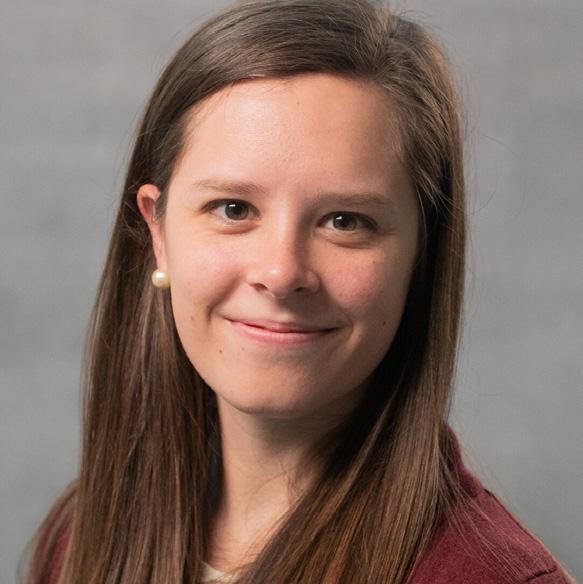
I am deeply honored to receive the Ken Jacobs Memorial PhD Thesis Award. Thank you for this incredible recognition and support.
My PhD research focused on identifying genetic modifiers of rare and understudied diseases to better understand their underlying biology. By studying both human genetics and Drosophila models, I looked at how changes in one gene can impact the effects of others. I used both genetic sequencing from patient families and evolutionary data to identify modifier genes.
As I transition into the next phase of my career, I plan to gain additional training in teaching and mentoring before pursuing a faculty position at an undergraduate institution. I am passionate about education and am eager to inspire and guide the next generation of scientists.
I have a new baby, so this award will be an immense help to my family as I continue my professional development. I am truly grateful for your generosity and the honor of being selected.
Sincerely,
Holly Thorpe

